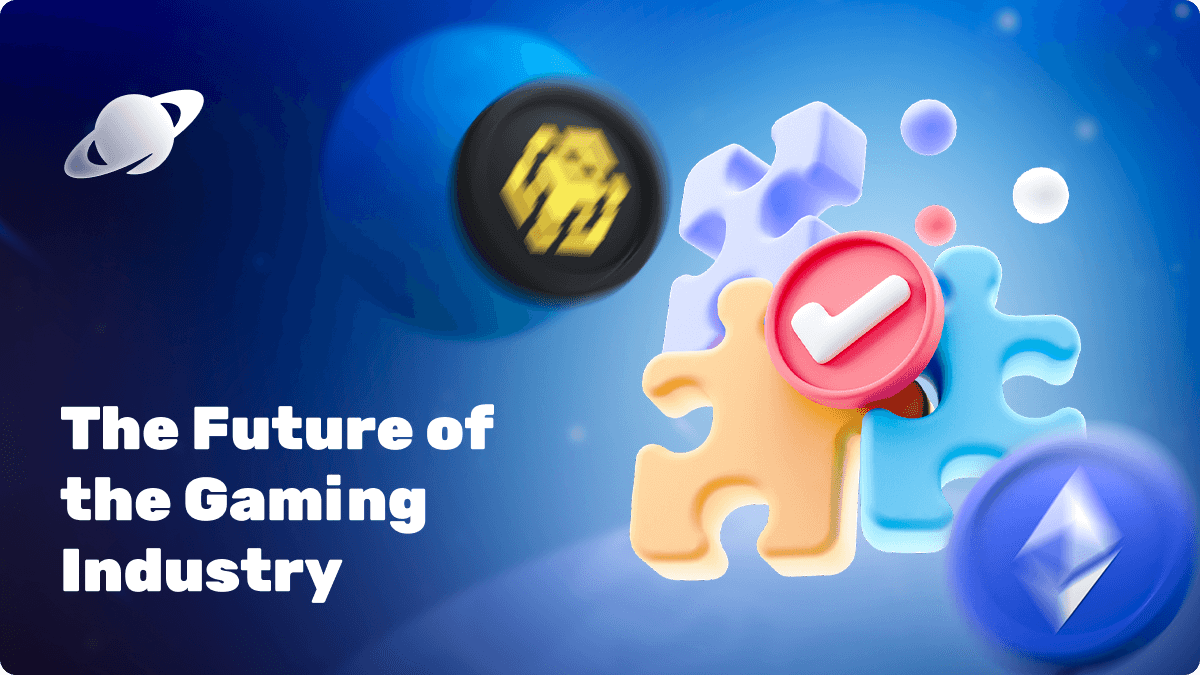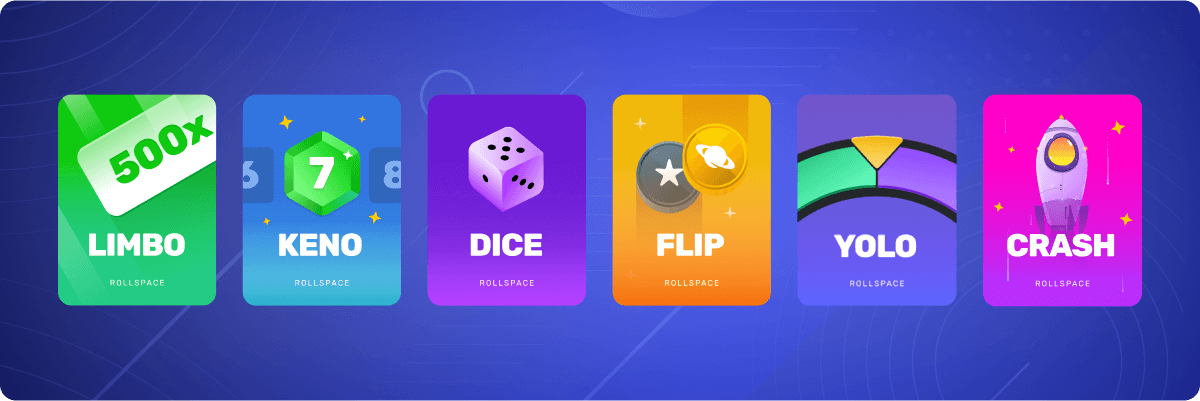Play Games and Earn LUCK.

Play Games and Earn LUCK.


The gaming industry is undergoing a seismic shift, driven by the advent of decentralized gaming. Traditionally, players have been at the mercy of centralized systems, relinquishing control over their in-game assets and trusting developers with their data, despite the inherent risk of a single point of failure in these systems.
Now, imagine a world where players have true ownership of in-game assets, compete in a fair environment, and earn real rewards simply by playing. This isn't a distant dream—it's happening now, thanks to blockchain technology. Decentralized gaming is not only transforming how games are played and monetized but also empowering players like never before.
In this blog post, we will explore the fundamentals of decentralized gaming, its advantages over traditional gaming, and its promising future.
Decentralized Gaming is a revolutionary approach to gaming that leverages blockchain technology to empower players and reshape traditional gaming structures.
Key characteristics of decentralized gaming include:
Blockchain-based ownership: In-game assets (weapons, avatars, virtual land) are represented as non-fungible tokens (NFTs) on a blockchain. This grants players verifiable ownership and the ability to freely trade or sell them on marketplaces.
Decentralized governance: Some decentralized gaming projects utilize Decentralized Autonomous Organizations (DAOs) to allow players to participate in decision-making processes regarding game development and rule changes. This fosters a more community-driven experience.
Play-to-earn (P2E) economies: Decentralized gaming often integrates cryptocurrencies or tokens that players can earn through gameplay. This "play-to-earn" model incentivizes engagement and creates potential income streams for players.
Transparency and immutability: Blockchain technology ensures a secure and transparent record of in-game transactions and player actions. This mitigates issues like fraud or manipulation.
It's important to note:

The inner workings of decentralized games can differ, but many blockchain games share common building blocks, including: distributed ledger technology (DLT), non-fungible and fungible tokens, and decentralized autonomous organizations (DAOs). Let’s explain each of these components in more details:
Decentralized games use DLT to store gaming elements. The games themselves aren't stored with DLT, but they use decentralized applications (dApps) that allow players to connect their wallets to the game. Game assets, character data, and in-game currencies are often minted as non-fungible or fungible tokens and stored on a distributed ledger.
Additionally, decentralized games can let players use blockchain-based decentralized identifiers for their player information. When players' personal information is stored in a decentralized way, it's less susceptible to being exposed during a hack.
Many games mint in-game assets as NFTs, granting players true ownership and the ability to trade them for potential profit. Additionally, decentralized games often have their own cryptocurrency for in-game purchases, with some rewarding players for completing tasks. For example, Illuvium, a blockchain game with a play-to-earn structure, allows users to earn in-game rewards in ILV tokens by engaging in competitions and quests).
The Solana network even introduced semi-fungible tokens (SFTs) that combine NFT and fungible token properties. SFTs allow developers to create upgradeable items, like iron armor that evolves into a unique NFT with special features as players progress in the game.
For example, a developer may mint 1,000 SFTs representing a set of iron armor. Players can upgrade their iron armor SFT as they level up to create a unique armor NFT with special in-game characteristics.
Some decentralized games empower players to influence the game’s future through voting on important developments. Players can typically acquire the game's governance token and stake their tokens to vote on proposals that impact the game's direction. In some instances, game development studios themselves can operate as DAOs, eliminating centralized control.
Decentralized gaming offers a novel approach with both advantages and disadvantages to consider. Let’s explore these in the section below.
Enhanced Security: Decentralized games leverage distributed ledger technology (DLT) to store game data. Unlike centralized servers, DLTs are more resilient to hacks due to their cryptographic protection and global network of interconnected nodes.
Increased Player Privacy: Many decentralized games on platforms such as Rollspace allow logins through crypto wallets or decentralized identifiers, minimizing the risk of personal information exposure.
Empowering Players: Decentralized gaming communities often have a say in significant game developments through voting systems. Additionally, players hold true ownership of their in-game assets, fostering a sense of agency.
Promoting Fairness: Certain DLTs boast rapid transaction finality, enabling swift validation of player actions. This can potentially reduce cheating or fraud within the game.
Scalability Challenges: Many distributed ledgers (DLTs) struggle with slow transaction speeds and high fees. This can hinder decentralized games as they scale and accommodate larger player bases.
Limited Interoperability: While the potential exists for inter-game asset and character use, current blockchain interoperability issues pose a challenge. Players on different blockchains (e.g., Ethereum vs. Solana) may not be able to seamlessly utilize their in-game items across various games.
Technical Hurdles: Engaging with decentralized games often requires technical knowledge. Setting up a crypto wallet, protecting passwords, and navigating token purchases might be daunting for some players.

Decentralized gaming is poised to disrupt the traditional gaming landscape, offering a compelling alternative to the current state of affairs. Here's why:
Fueling Player Discontent: Recent trends of unfinished games at premium prices, coupled with potential lawsuits, are creating a fertile ground for change. Players yearn for more control and a sense of ownership over their gaming experiences.
Decentralized Gaming Empowering Approach: Decentralized gaming addresses these concerns by granting players greater control over the games they love. Features like in-game asset ownership, potential influence over development through DAOs, and "play-to-earn" models empower players in a way traditional gaming often doesn't.
Evolving Technology: As decentralized systems mature, exciting possibilities emerge, such as initiatives leveraging blockchain technology to combat cheating in online games, a significant pain point for many players.

Rollspace is revolutionizing decentralized gaming by offering a diverse array of play-to-earn games, allowing users to enjoy titles like Limbo, Keno, Plinko, Dice, Coin Flip, Crash and YOLO games.
Prioritizing privacy, Rollspace requires players to simply connect their Web3 wallets to start gaming, ensuring a secure and straightforward user experience. Furthermore, Rollspace features player-versus-player (PvP) modes, where players compete against real opponents rather than algorithms, enhancing the excitement and fairness of the gameplay.
Built on various blockchains like BNB Chain, Blast L2, Base, and the newly added MODE Network, Rollspace offers users more options and opportunities to earn crypto while playing.
Explore the future of decentralized gaming at Rollspace.